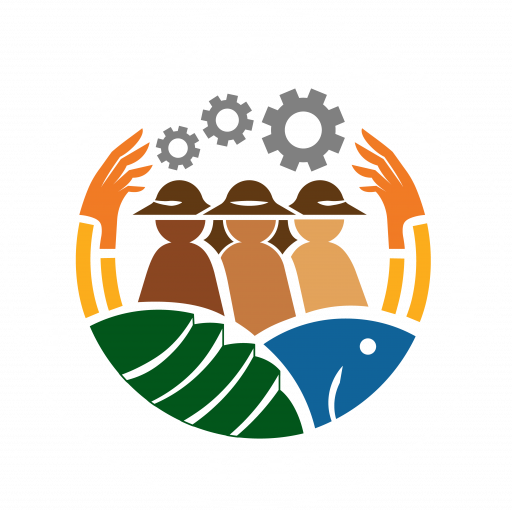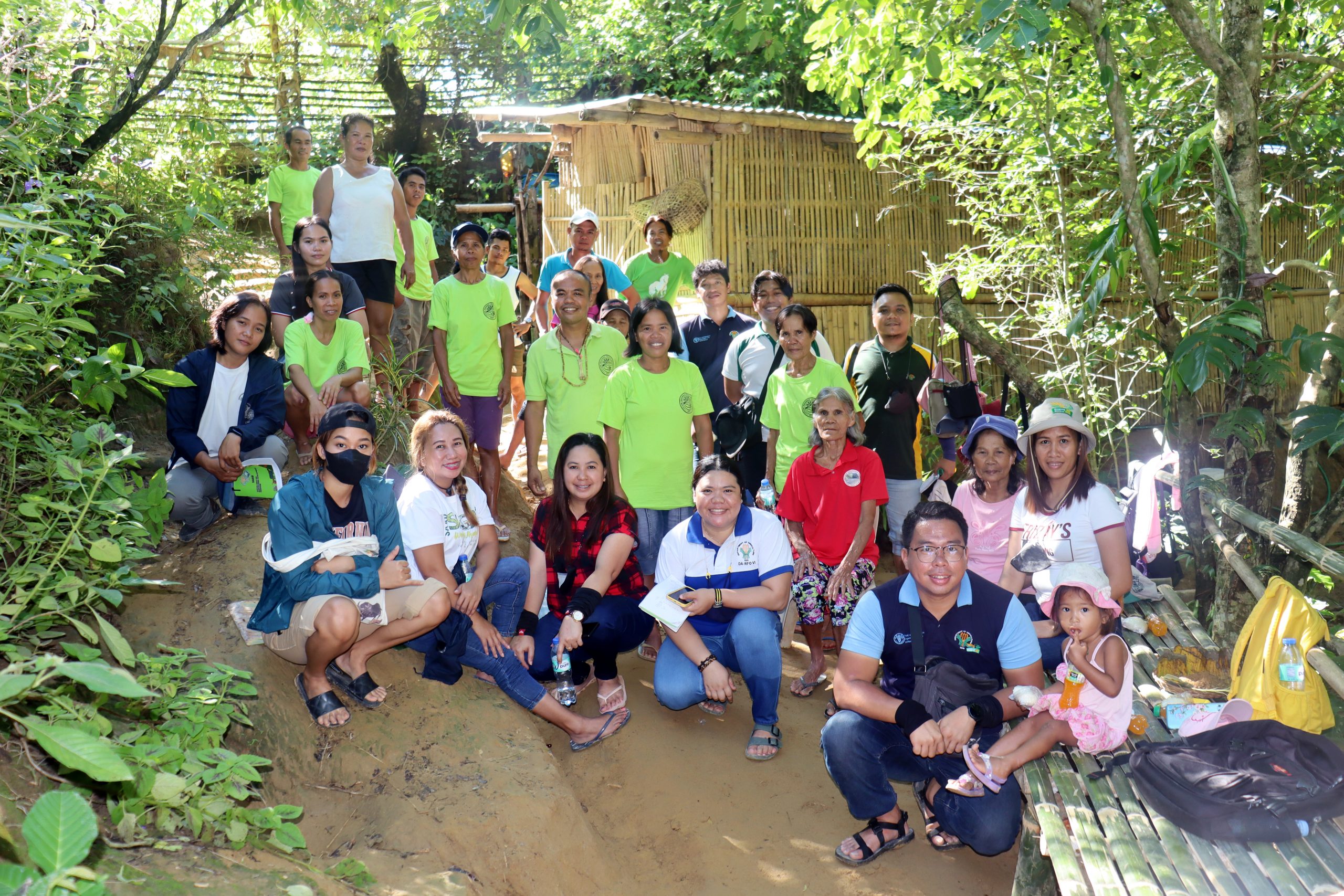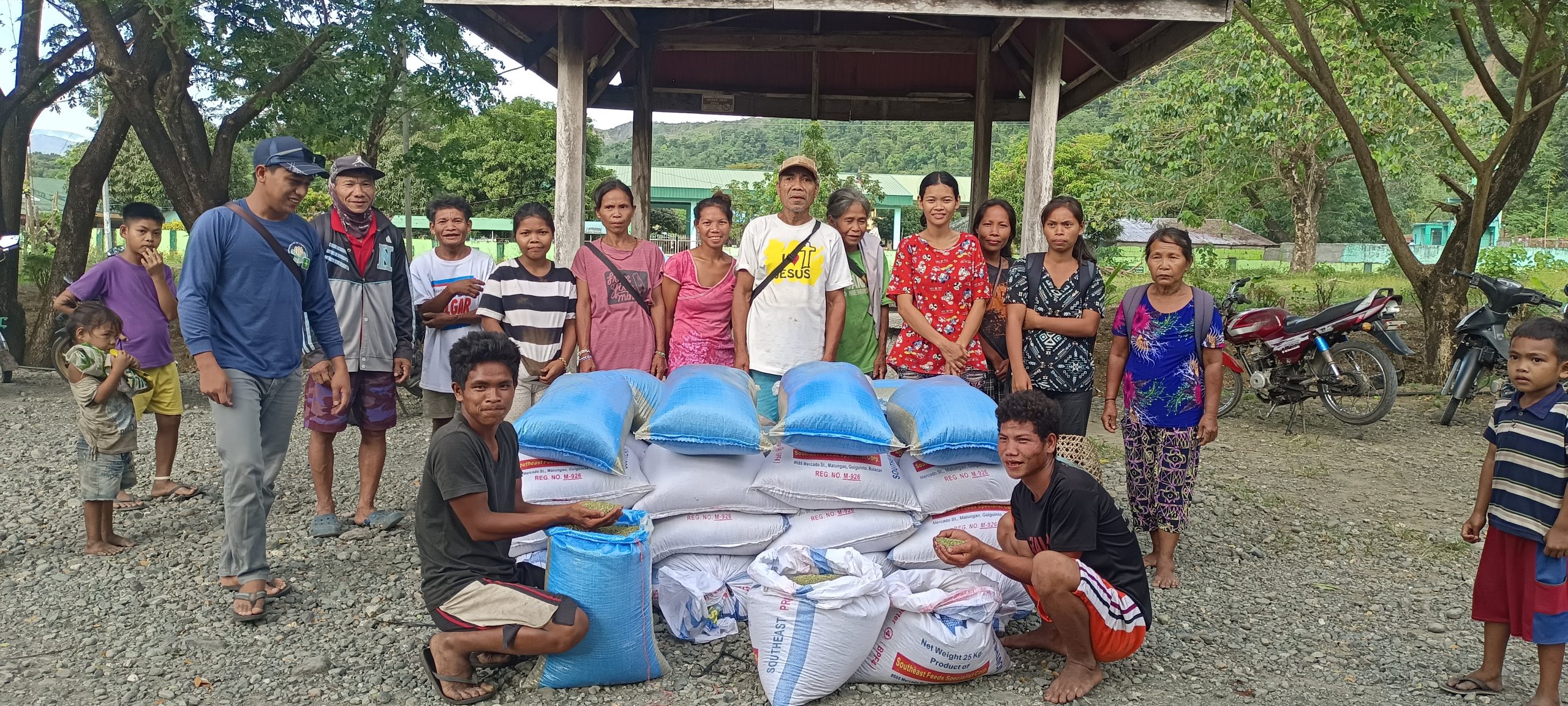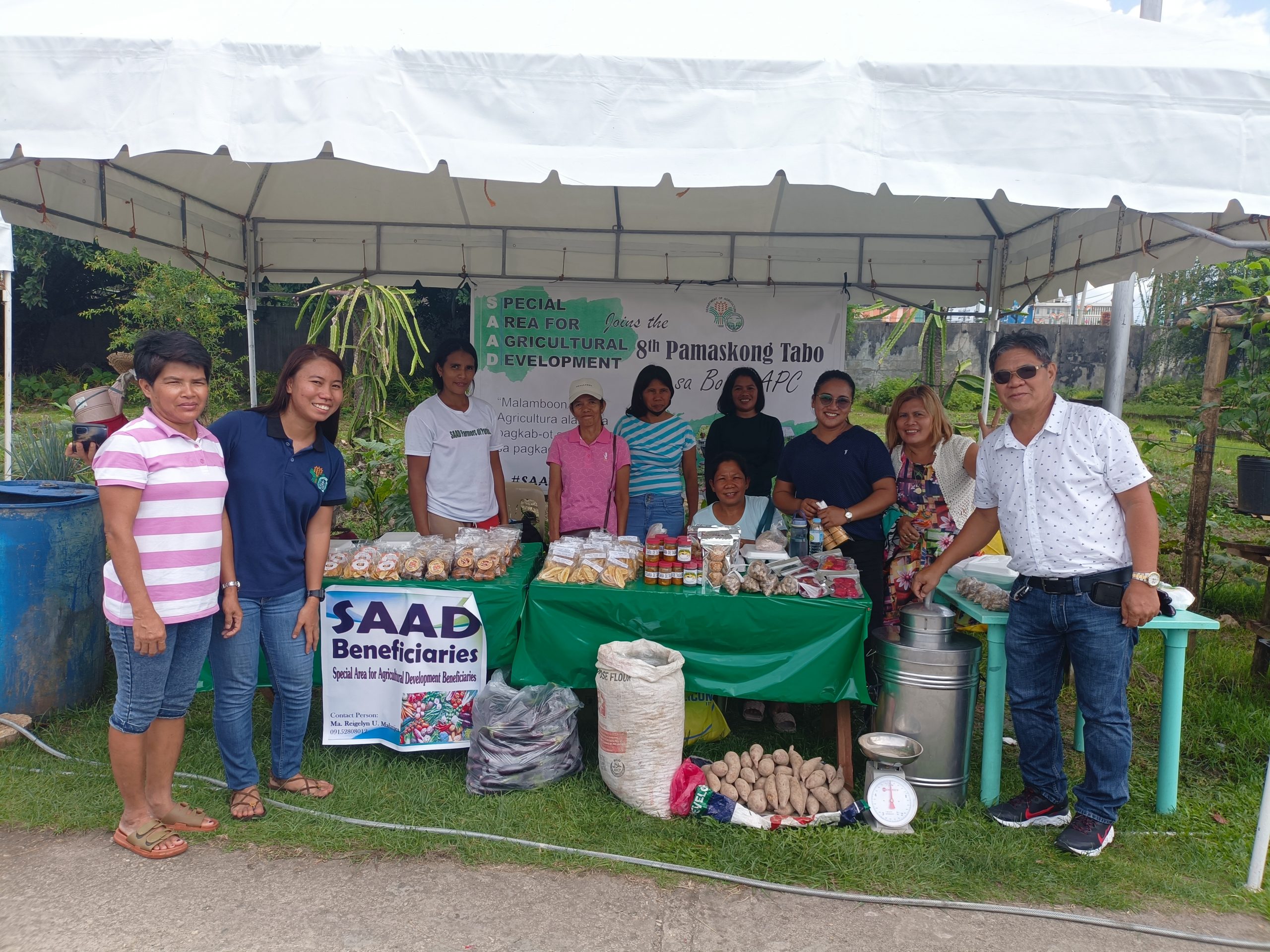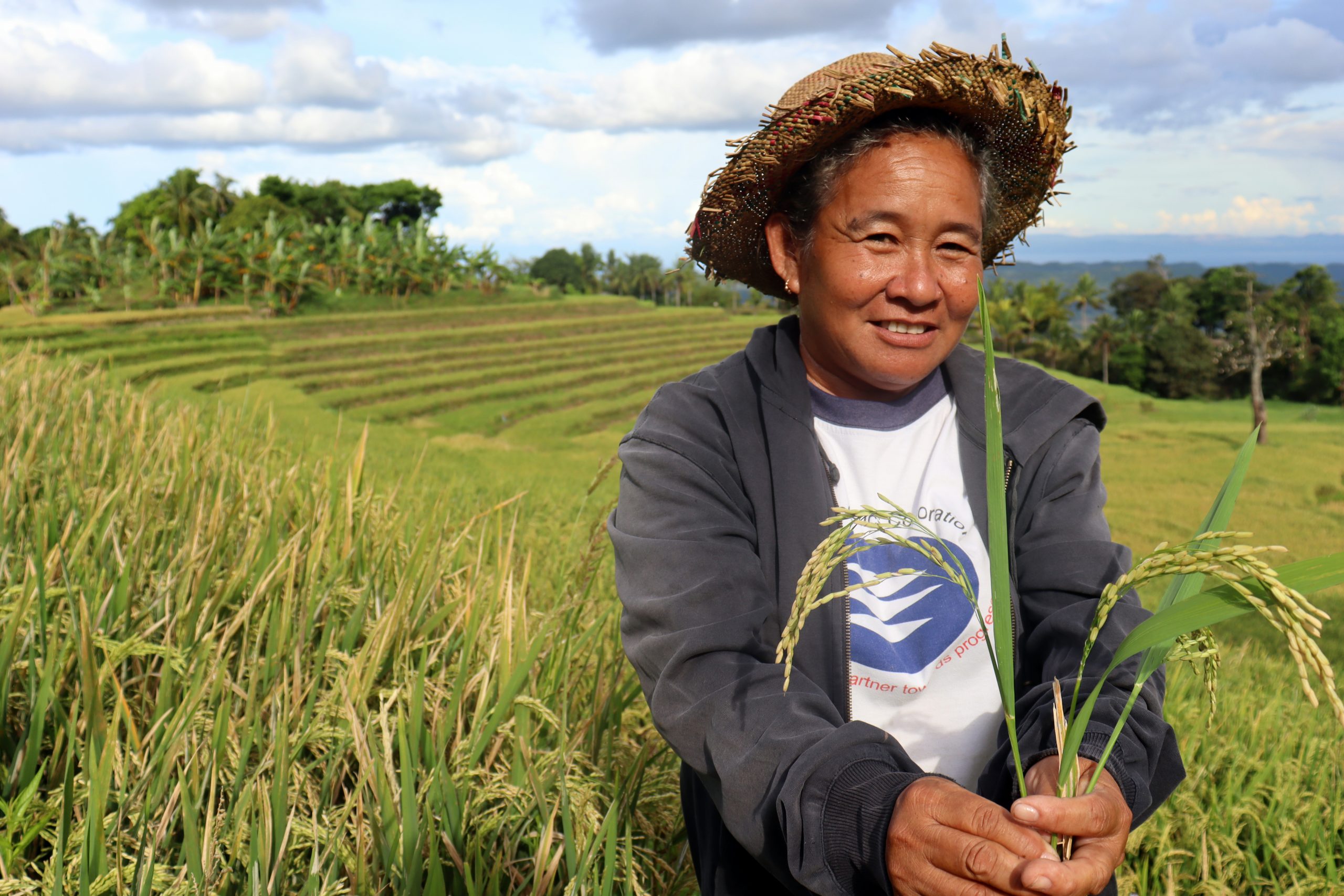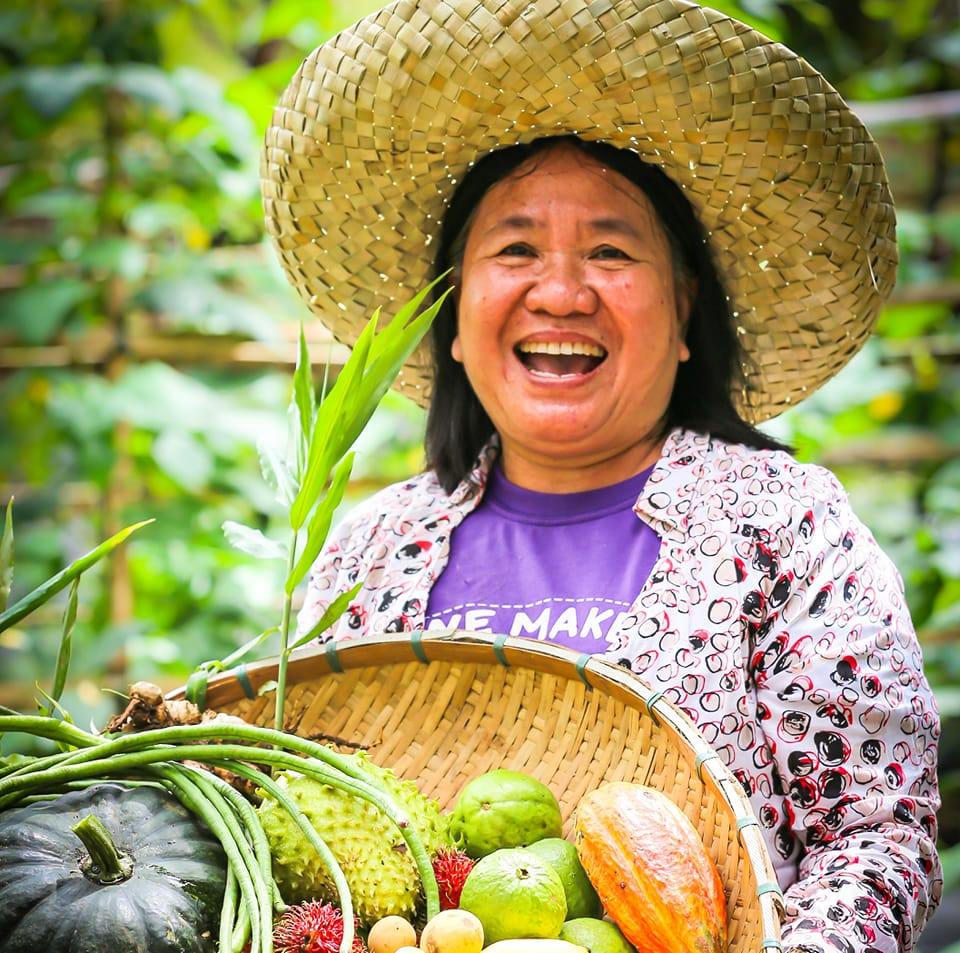WESTERN VISAYAS, May 31, 2022 – The National Program Management Office (NPMO) of the Department of Agriculture – Special Area for Agricultural Development (DA-SAAD) Program completed its Results-Based Monitoring and Evaluation Rapid Appraisal (RBMERA) for selected associations in two focused provinces in Western Visayas from May 16 to May 26.
The two-week RBMERA aims to assess selected farmers’ associations’ (FA) overall situation, including their status in production, harvest, organizational management, and market links as part of the transition period for the SAAD program’s conclusion this year and in preparation for the proposed SAAD extension.
The national office spearheaded the said activity both in Negros Occidental and Antique, where the 24 associations which underwent assessment were selected based on the RBMERA criteria such as End Local Communist Armed Conflict (ELCAC) areas, big-ticket projects, typhoon-affected areas, and identified projects based on potential, struggles, and change of directions.
Mr. Darwin Pamatmat, NPMO’s Planning, Monitoring and Evaluation (PME) Unit Head, together with NPMO Focal Person for Region 6 Mr. Gio Renzo Caballero along with the Information Technology and Database team, led focused group discussions with farmer leaders as well as assessment of their project implementation.
To note, RBMERA is a tool of the SAAD Program to evaluate the impact of SAAD interventions among its beneficiaries. Information gathered during the monitoring and evaluation activities will justify the importance of the program and will serve as a basis to come up with policy recommendations to further assist SAAD farmers.
In coordination with the SAAD Regional Project Management Support Office (RPMSO), Provincial Project Management Support Office (PPMSO), and local government units, the team visited 24 SAAD project sites for evaluation.Table 1. Project Areas visited for RBMERA
| Province | Municipality | FA | Projects |
| Negros Occidental | Moises Padilla | Mambalio Tibobong Integrated Farmers’ Association | Corn Production Project |
| Sitio Napiluan Integrated Farmers’ Association | Cassava Production Project & Goat Production Project | ||
| Binhi sang Kauswagan sang Sto. Domingo | Chicken Layer Egg Production Project | ||
| Don Salvador Benedicto | Pandanon Integrated Upland Small Farmers’ Association | Rice and Vegetable Production Projects | |
| Purok Locsin Farmers and Farmworkers’ Association | Native Chicken Production Project | ||
| Benejewan Integrated Social Forestry Farmers Association | Rice Production Project | ||
| Tuy-anan Farmers Association | Vegetable Production Project | ||
| Calatrava | Lalong Integrated Upland Farmers Association | Rice Production Project | |
| Lower Lalong Farmers’ Association | Rice Production Project | ||
| 4H Club Lalong Chapter | Goat Production Project | ||
| Mahilum Owakon Basag Corn Farmers’ Association | Corn Production Project | ||
| Toboso | Mag-aso-aso Ma-init-init Mansulao Farmers’ Association | Rice Production Project | |
| Brgy. Salamanca Coconut Farmers’ Association | Chicken Layer Egg Production Project | ||
| Antique | Valderrama | Bugnay Irrigators’ Association | Vegetable Production Project |
| Brgy. Takas Farmers’ Association | Corn Production Project | ||
| Borocboroc Manlacbo Bunsod Lublub Farmers’ Association | Peanut Production Project | ||
| Bunsod Farmers’ Association | Chicken Layer Egg Production Project | ||
| Laua-an | Latazon Indigenous People’s Organization | Chicken Layer Egg Production Project | |
| Ratanila Cluster Level Association | Provision of Farm Machineries and Peanut Production Inputs in support to 2019-2020 Rice Production Project | ||
| San Remigio | Osorio I Farmers’ Association | Rice Production Project | |
| Lumpatan San Remigio Antique Farmers’ Association | Rice, Corn and Native Chicken Production Projects | ||
| Sinundolan Integrated Social Forestry Upland Farmers Association | Rice, Corn and Chicken Layer Egg Production Projects | ||
| Uswag Durog Farmers’ Association | Organic Backyard Vegetable Production Project |
Methodology and Initial Findings
The regional process flow was first revisited during the monitoring to review and harmonize the project implementation procedures of the DA-SAAD Western Visayas in line with the guidelines set by the national office. SAAD Antique and Negros Occidental also presented their actual process flow.
The NPMO team’s approach was conversational, executed through istoryahan, to establish a better rapport with the recipients and acquire data more efficiently during the Focused Group Discussions (FGD).
Mr. Pamatmat emphasized to all FAs the importance of record-keeping as this provides valuable information concerning what worked and what did not and possibly, the reasons why some things did not turn out as planned. Record keeping is also needed for future analysis of production methods, cropping history, and decision-making.
“One set of accurate records should be enough to satisfy all of your needs. If you keep good records of production, expenses, and income, you should have all of the required information for any purpose. Good records lead to better decisions and hopefully higher returns,” said Mr. Pamatmat.
As mentioned, the beneficiaries of vegetable production projects were advised to adopt new technologies to come up with/or and seek alternatives to organic pesticides and fertilizer to avoid deviating from their organic farming practices. Also, the associations were advised to revisit their individual policies and likewise divide the labor and income among their members to boost participation within the group.
The SAAD beneficiaries, for their part, provided stories of their accomplishments aligned to their mission, vision, plans, issues, and problems within the association. They also shared their communities’ immediate needs such as the establishment of farm-to-market roads, expensive hauling fees, and water sources, among others.
More importantly, the team urged the recipients to devise ways in order to upscale their recordkeeping and intensify project management and best practices geared towards collaborative and collective undertakings where all members can actively participate, in case there will be possible future linkages to the DA banner programs.
Since the start of its implementation in 2019, the SAAD Program in Western Visayas has already expanded its area of coverage from three municipalities to eight. The program was able to provide 136 production and livelihood interventions to 698 individual and 383 group beneficiaries with 13,419 members in the region.
Through the provision of livelihood interventions and technical assistance, the SAAD program contributed to poverty-stricken communities that seldom receive much-needed support from the government to attain resilient and sustainable rural economies. ###
Writers: Christ John Gamarcha & Cedie Bataga, DA SAAD 6 Information officers
